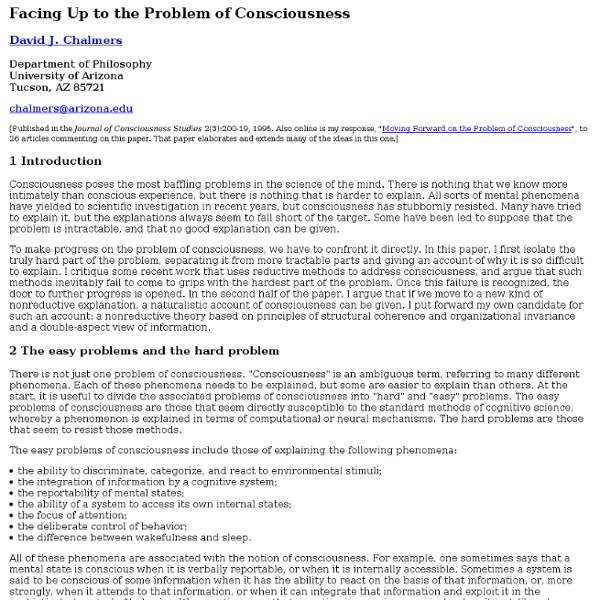What's your sign? Discover the world of signs and symbolic meanings.
The Holographic Brain
Daniel Goleman: History tells us that, with every paradigm shift in science, a new frontier of legitimate investigation opens. And from that new frontier come answers to questions the old paradigm did not allow to be asked. It seems to me you're posing questions that have not been allowed before a precarious position. Karl Pribram: Let me tell you how I got into the holographic story. Back in the 1950s, people dealing with the brain and those dealing with mental processes weren't together. For one thing, brain science was plagued by some classic, unsolved mysteries. Experiments had been done showing that just 2 percent of the fibers in a particular system would retain that system's functions. Thus, for over half a century, physiologists have searched for an “engram”—a change in brain cells that marks a memory trace. Goleman: What are the other classic puzzles of brain science? Goleman: Where have puzzles like that led you? Pribram: Ideas started to come together in the mid 60s.
Truth & Revelations
The purpose and goal of the site. the aim of truth and revelations is to bring to light the real teachings of the ancient wisdom. the Christian Church, in the 3rd century, began to systematically eliminate the ancient wisdom teachings, plunging the Occidental world into a Dark Age which still envelopes us today. Ironically, the ancient wisdom is contained in the Bible, available to those who have the keys, as provided in the articles. We elucidate the ancient wisdom symbolism with reference to the Bible and other scriptures and mythologies. Penetrating into the human condition and the cosmic purpose of human life and the structure upon which it is based as mankind needs an understanding of the ancient wisdom in order to restore earthly life to its true glory and purpose. The essence of the ancient wisdom Central to the ancient wisdom is the concept of the divine spark or seed buried within each person. 4- The best that can be done is to create a situation in which you can learn.
The Roots of Consciousness: Theory, Consciousness and the New Physics
Consciousness and the New Physics Space-Time According to Einstein The special theory of relativity, formulated by Albert Einstein in 1905, is based on the experimentally confirmed idea that the velocity of light is the same universal constant, c= 3x1010 cm./sec., for all observers who move uniformly in straight lines relative to each other. Consequently, Einstein's genius deduced that events which are simultaneous to one observer are not simultaneous to a second observer. Nobel laureates Albert Einstein, scientist, and Rabindranath Tagore, mystical poet Furthermore, moving clocks run slow. Like all scientific facts, these results presuppose that the observers are in a common state of consciousness whose legitimacy is determined by their agreement or social contract. Physicists use a simple geometric picture of the flat spacetime of special relativity called a "Minkowski diagram." Space-like processes, if they exist, could be in two or more widely separated places at the same time.
The Gnosis Archive: Resources on Gnosticism and Gnostic Tradition
What is Gnosticism? Many visitors have requested some basic introductory material explaining Gnosticism. To meet this need we offer these "places to start": two short articles, The Gnostic World View: A Brief Summary of Gnosticism and What is a Gnostic?; and an audio lectures (mp3 format) on the Gnostic concept of Christ: The Misunderstood Redeemer. A reading of the Overview of the Gnostic Society Library collection will also give a useful brief introduction to the history and textual legacy of the Gnostic tradition. Meditations Take a moment to reflect on a brief meditation and reading from the Gnostic scriptures, selected from this week's Gnostic liturgy. The Gnostic Society Library Visit the Gnostic Society Library, a comprehensive library of Gnostic scriptures, which includies the complete Nag Hammadi library of Gnostic texts and other ancient writings and documents relating to Gnostic tradition. Documentary films: Nag Hammadi Library collection updated: Gnosis and C. "C.G. C. C.
Customer Reviews: Quantum Physics, Near Death Experiences, Eternal Consciousness, Religion, and the Human Soul
Rosicrucian Archive - Presenting ideals of Rosicrucianism
Rudolf Steiner



